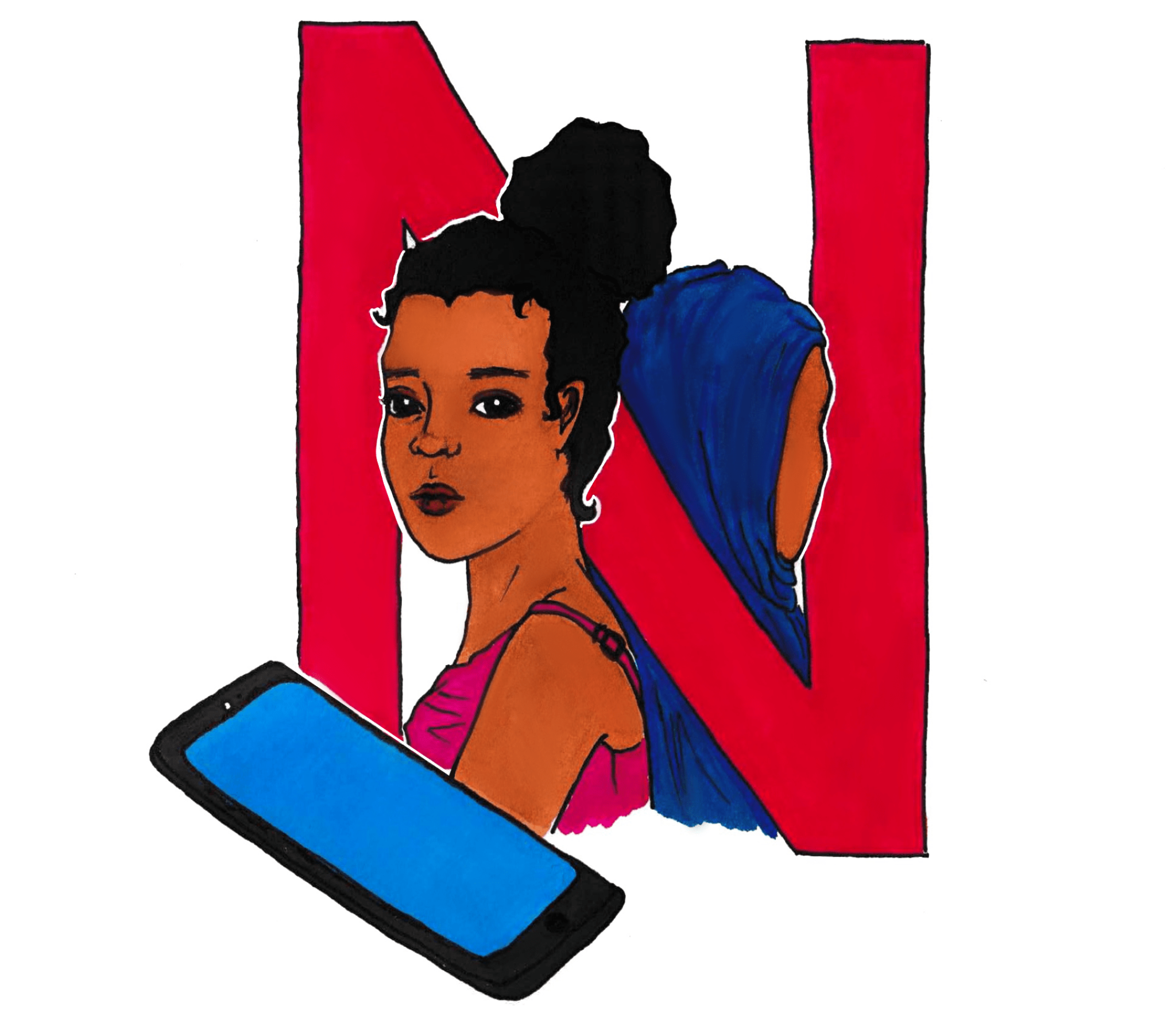The new Netflix movie Cuties is rumored to be part of the global conspiracy QAnon, involving Tom Hanks, Hillary Clinton, Jeffrey Epstein, and Comet Ping Pong Pizza. Cuties has been added to the long list of people and things involved in the conspiracy, which is about a global child sex trafficking ring that Donald Trump is fighting to take down.
Cuties is a new French language Netflix film that has caused nationwide uproar over its content. Since its U.S. release, it has prompted thoughtful individuals such as Alex Jones (of InfoWars) and the aforementioned organization QAnon to promote the downfall of Netflix.
Cuties is set in Paris, where an 11-year-old girl Amy — played by 14 year old actress Fathia Youssouf — distances herself from her conservative Muslim family. Amy defies her family, originally from Senegal, by joining a group of girls known as “the Cuties,” who want to enter a dance competition. It is a classic story of loneliness, living between two worlds, and the sexualization of young girls. The movie’s intent is to showcase how girls and women can feel powerless in a male-dominated society and how sexuality can perhaps empower women. Cuties often juxtaposes imagery of “the Cuties” dancing in an intentionally provocative way with dialogue suggesting they are unaware of their overt sexuality at such a young age. Maïmouna Doucouré, the Black female director and creator of Cuties, commented that the movie was meant to convey that “Childhood is precious and we have to protect our children.”
Unfortunately, the intended message conflicts with the images that viewers received. All the girls — the “Cuties” — wear suggestive clothing, such as leather pants and tube tops, and dance in suggestive ways. Discomfort was part of Doucouré’s goal, which is why the dancing and behaviour of the young girls is overtly sexual. Doucouré hoped that this discomfort would lead to a reevaluation of how we, as a society, let girls be children. What Doucouré seemed to forget is that once something enters the mainstream media the way her film did on Netflix, the way that people view or interpret the content cannot be entirely controlled. Doucouré left a lot to be interpreted.
It’s definitely possible to look closely and pick up on what Doucouré was going for, don't get me wrong. However, ultimately, the images in this movie can be taken out of context way too easily. When movies ordinarily employ this kind of imagery, it’s really just so that male viewers can gratify themselves, or to reinforce the objectification of women and their caste within society. With Cuties, regardless of Doucouré’s intent, I see no reason why the sexualized images of prepubescent girls would work any differently.
The entire movie was spent in discomfort, pondering if one might go to Hell for the sin of viewing alone. You can really see the disparity in understanding of the film from how it was critically received. Film critics, for the most part, rated it pretty well (83 percent on Rotten Tomatoes), while the audience rating was 13 percent. I would be willing to bet that a large majority of the negative reviews are from those who have never watched it, egged on by QAnon and others to bring it down. Even so, it points to what I think is a glaring problem with the movie, it’s nuance. Normally nuance would be a good thing, but in a movie with such a glaring, uncomfortable problem, anything decent is outshined. For the record, even ignoring the gratuitous sexualization, it’s still not a great movie, with more than a few plot holes and terrible dubbing.
In no way do I think that Cuties was intended to support the sexualization of children, but I believe the majority of viewers will miss the point entirely and learn the wrong lessons from the film. The conspiracy theory QAnon is notoriously hard to believe, but the interpretation of this movie is, honestly, not too far fetched. If Cuties had been mindful of the boundaries it was crossing, perhaps it would have been a much more meaningful movie. On the other hand, it’s very unlikely that it would have gotten nearly as many views without its controversy (I certainly wouldn’t have watched it), and therefore its message wouldn’t have been nearly as far reaching.
My initial reaction after viewing was, “that was terrible, Netflix should take it down.” Most probably still believe some of that. It took a lot of reading and understanding of the director to understand what it was really about. Most viewers won’t go through that process. I wouldn’t recommend this movie to anyone. However, it does serve as a reminder to consumers and producers of 21st century content to be wary of the intent and audience of any piece of work.





